The Volkswagen Golf has been king of the hill in the small hatchback category. The Volkswagen Golf is practically as popular as the all-time favorite the Volkswagen Beetle.
Nothing even came close to the Volkswagen Golf until this last year when Hyundai took a run at the Volkswagen Golf with its own subcompact, the Hyundai 130?
If potential buyers are considering a family hatchback in this price range, chances are their choices are narrowed down to just two, the newly updated Hyundai i30 is turning heads. But is it enough to outclass the Volkswagen Golf, the world leader in family subcompacts? Here are some things to consider.
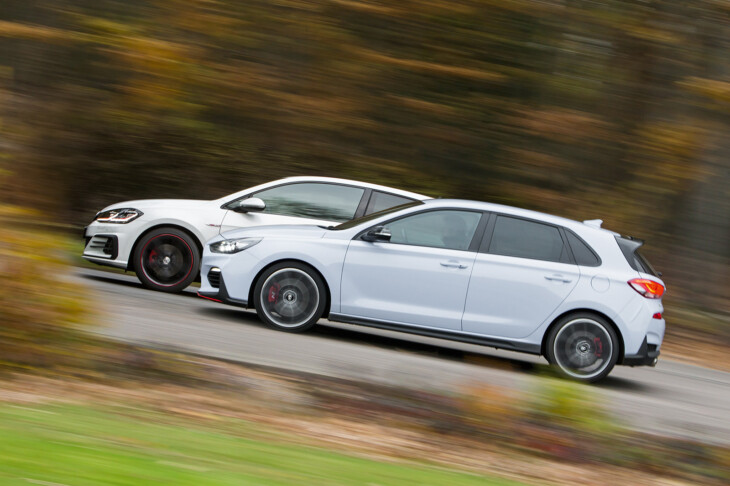
Source: Autocar
Contents
Neither is a new vehicle
First of all, to be totally honest, neither the Hyundai i30 nor the new Volkswagen Golf is a totally new vehicle. The Hyundai 130 is a facelift, with emphasis on the interior. The Volkswagen Golf is a newly designed vehicle but uses the same powertrain from the past.
But rather than define interior changes, let’s start, not with the interior but the engine.
The Volkswagen Golf and Hyundai i30 engines
Although there are different engine models available, we’ll assume that small families buying either of these vehicles consider economy as well as nimbleness on the highway as the reason for buying a subcompact.
After all, not everyone needs a family-size SUV to get to and from work.
Comparing the two engines, however, takes a bit of automotive knowledge for a complete comparison. The reason is that the Hyundai i30 has more horsepower than the Volkswagen Golf, but has much less torque.
The Hyundai’s 1.0-liter engine has 118bhp and 172Nm of torque, as compared to the Volkswagen Golf’s 1.0 liter, which offer 108bhp, but with 200Nm of torque.
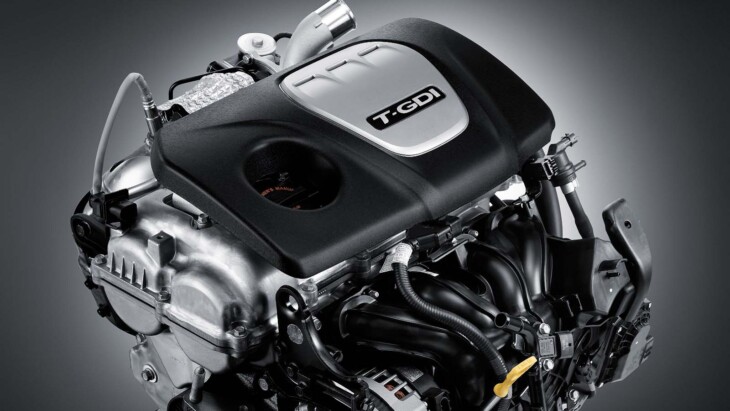
Source: Pinterest
On the highway when passing cars, you will definitely see the difference in terms of nimbleness.
In a head-to-head, zero to 62 miles per hour, the Hyundai i30 took 11.2 seconds to reach 62 miles per hour, while the Volkswagen Golf beat the pants off the Hyundai 130, reaching 62 miles per hour in 10,2 seconds.
On the highway, where you need to be quick and nimble, that extra torque comes in mighty handy.
Of course, the natural question is, do you give up some fuel economy for having that extra engine ummph?
The answer is yes, you do. In terms of fuel economy, the Hyundai i30 produces an average economy of 48.7 miles per gallon, which means at current gas prices, a European driver will expect to pay roughly £1,333 on petrol, as compared to the Volkswagen Golf which boasts 44. 5mpg and will cost £1,398 over the same time period.
However, we are betting that the vast majority of people will be willing to absorb an extra £65 in fuel costs for extra acceleration on the highway where it really matters.
The throttle is much more responsive in the Volkswagen Golf, and even the engine sounds throatier.
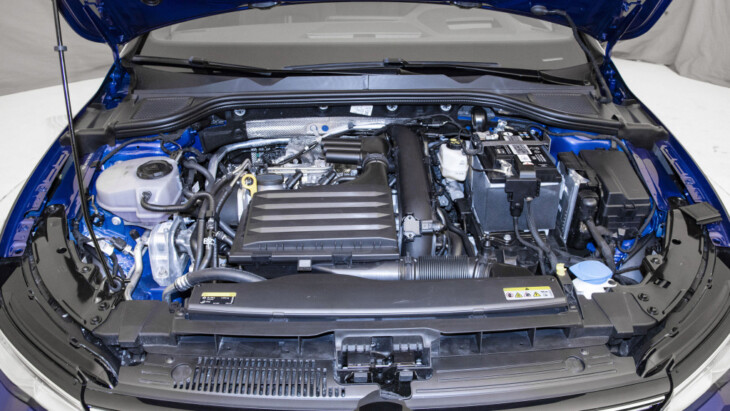
Source: inf.news
Transmission
Both the Hyundai i30 and the Volkswagen Golf have a six-speed manual transmission. The Volkswagen has a standard transmission while the Hyundai has a newer transmission called an intelligent Manual Transmission (iMT). Basically, the IMT system allows computer technology to make the vehicle a little more efficient and may in part provide the better fuel efficiency of the Hyundai i30.
Steering
Both the Hyundai i30 and the Volkswagen Golf have a very light touch on the steering wheel so we would definitely call this one a push. We would not, however, when it comes to cornering, the Volkswagen Golf resists roll much better than the Hyundai i30.
As a result, the Volkswagen Golf has a more secure feel to it.
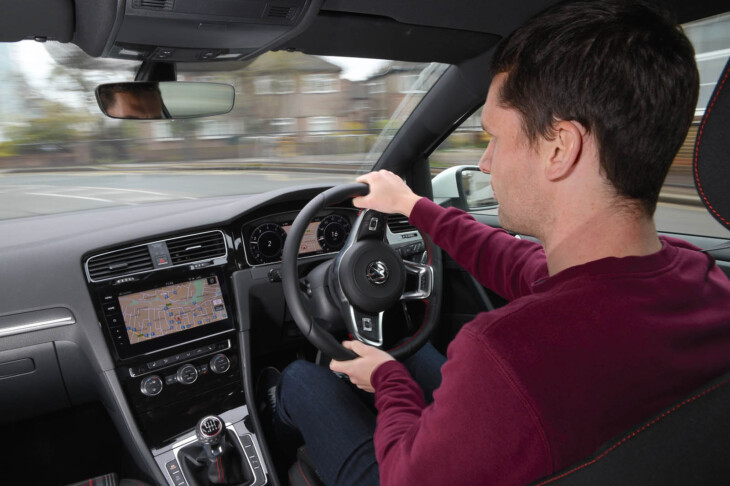
Source: Autocar
Warranty?
Here there is no question about it, the Hyundai beats the heck out of the Volkswagen in terms of warranty. Hyundai offers a 5 year, unlimited mileage warranty, whereas Volkswagen offers a 3 year or 60,000-mile warranty.
That extra warranty may just be enough to persuade a future buyer to purchase your used Hyundai i30 when you are ready to trade it in, but a warranty is not everything.
For one thing, a study in the US on car repairs reported that outside of warranty, the average person puts in about £330 in auto maintenance costs.
So theoretically, you are saving around £660 pounds for that extra two years of warranty.
However, as AutoExpress.co/uk noted the Volkswagen Golf, after 3 years or 36,000 miles had retained its retail value to 50.2 percent of the cost of the vehicle, while the Hyundai i30 lost an extra 10 percent of value, down to 41.9 percent.
The net comparison of depreciation after three years favors the Volkswagen Gulf by a whopping £1700 pounds. That £1700 pounds would make up for a lot of repair costs on the Golf in comparison to the i30.
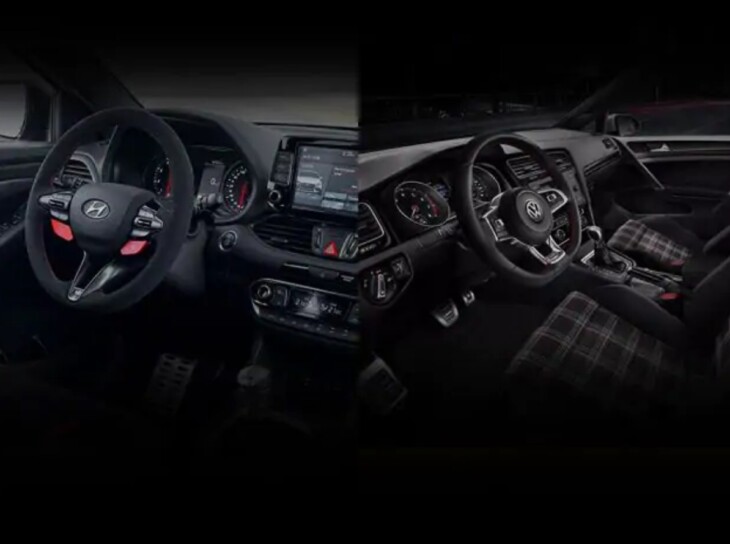
Source: Zigwheels Malaysia
Interior
There is no question that Hyundai spent a lot of money on the interior of the car and you do get a lot more money for your pound with the Hyundai ih30, and it’s mostly in the interior.
Sadly, the Volkswagen Golf has a lot of plastic looks and feel to its interiors, which definitely downgrades the value. It appears if the strategy of Hyundai is that if we can’t beat them in the engine and driving technology, that at least we can make the interior look better.
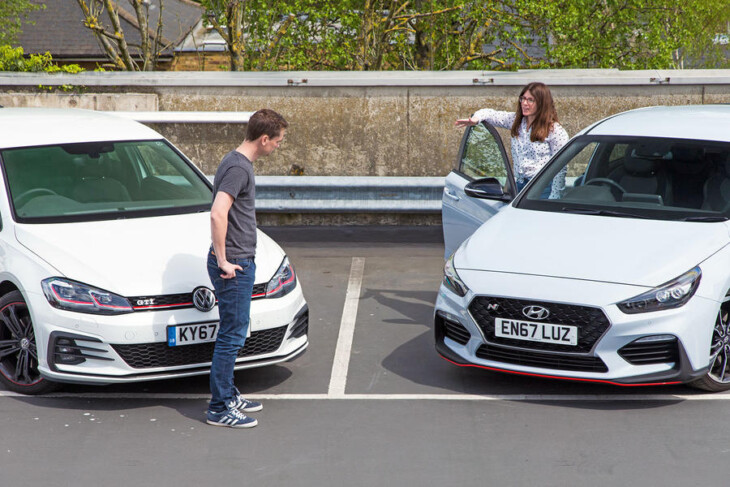
Source: Autocar
Conclusion
Hyundai gets an A for effort with the Hyundai i30, but the company has a long way to go to compete with the Volkswagen Golf.
The ride on the Volkswagen Golf is smooth as silk, and the throttle stands by the ready to react on the highway.
The Volkswagen Golf is also quieter, though at highway speeds it’s a near toss-up.
We’re betting that most drivers will be more wowed by the responsiveness of the Volkswagen than they are with the more lush Hyundai i30.
But Volkswagen significantly beets Hyundai both in safety tests, but in nimbleness.
We expect the Golf to remain king of the hill for a long time. Click here for more hatchback square offs at the Car Expert.
